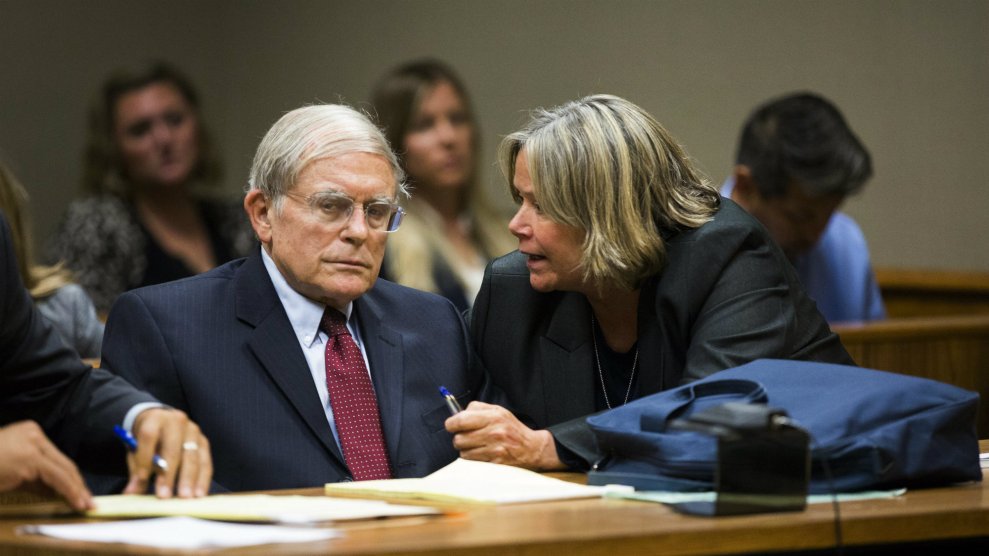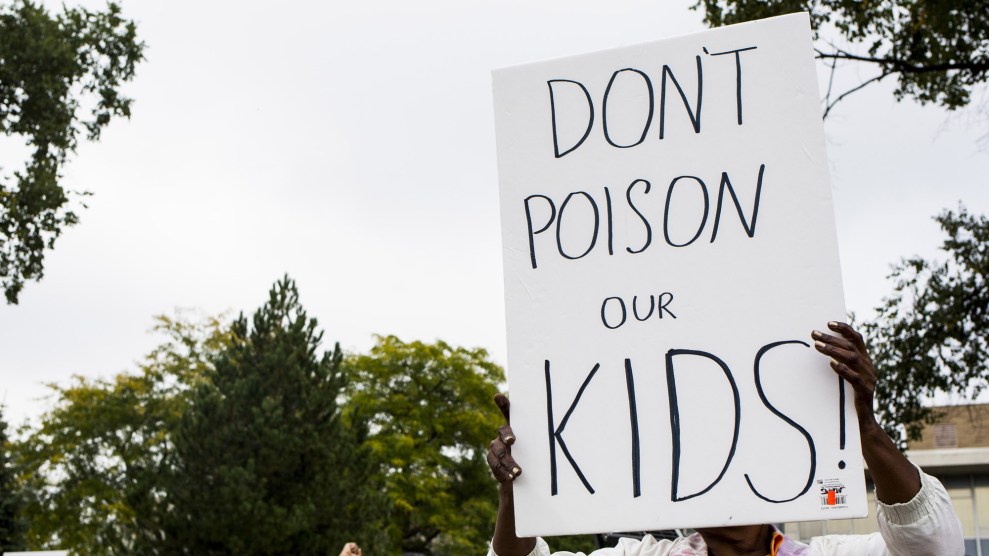
Dr. Eden Wells and one of her lawyers.Terray Sylvester/The Flint Journal-MLive.com/AP
On Monday, the Michigan attorney general’s office announced that Dr. Eden Wells, who was the state’s chief medical officer, would be charged with involuntary manslaughter for her role in the Flint water crisis.
In June, she was charged with obstruction of justice after she allegedly attempted misled investigators and tried to stop an investigation into the crisis. She is the sixth official to be charged with involuntary manslaughter. Five officials were charged in June, including Nick Lyon, Michigan’s Department of Health and Human Services director. His preliminary examination began this month.
In 2014, emergency city managers appointed by Republican Gov. Rick Snyder, switched the city’s water supply to the Flint River. Because the river had not been treated properly, the water began leaching lead from lead pipes outfitted in homes across the city. Doctors began reporting elevated lead levels in Flint children; lead poisoning can lead to a host of health problems.
Special prosecutor Todd Flood announced the new charges before a preliminary hearing for Wells was set to begin but would not go into details. Other officials charged with the same crime are accused of causing the 2015 death of Robert Skidmore, after failing to alert the public about a Legionnaires’ Disease outbreak. The disease, which has killed 12 people in Genesee County since 2014, was likely linked to the Flint Water Crisis. As Mother Jones reported in June:
Experts also concluded that an outbreak of Legionnaires’ Disease, an illness caused by a type of bacteria found in contaminated water systems, likely was linked to the city water supply. Symptoms include shortness of breath, headache, and fever. People over the age of 50 or people with chronic lung disease are at an increased risk of getting sick.
Between June 2014 and November 2015, at least 87 residents of Genesee County, which includes Flint, contracted Legionnaires’ Disease. Only 6-13 cases were reported between 2009 to 2013. In 2016, Lyon said that not all the cases were linked to the water crisis, because not every patient was exposed to Flint water.
Wells’ attorneys learned on Monday that there would be additional charges against their client. “I really can’t get into the details of it,” Flood told reporters, “but I think we’d be derelict if we didn’t charge her.”
Correction: An earlier version of this article misstated Dr. Eden Wells’ position.












